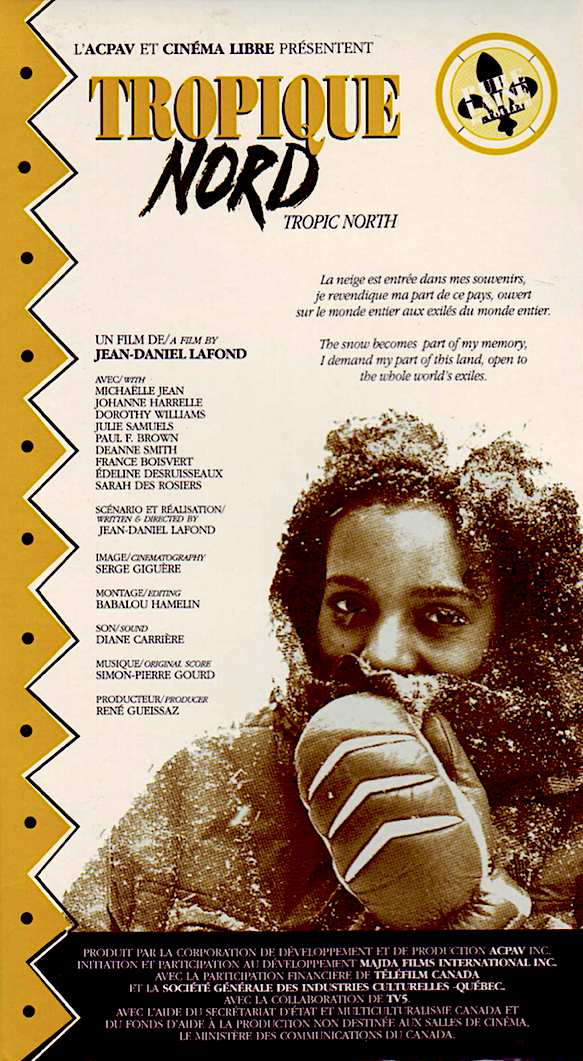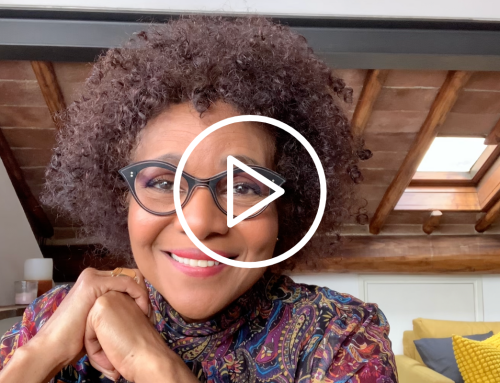Tropic North: A Black Stain in the Snow – Jean-Daniel Lafond

There remains a choice, always, to dream of an island we once knew, of some otherwhere to heal from the injuries of exile, the wound that comes from difference. When my film Tropic North was released, first in Montreal, then nationally and internationally, I didn’t know how much it would draw together and unite Black communities, while aggravating others who would refuse to see the evil of racism spreading across Quebec, and the rest of Canada.
Then-journalist Michaëlle Jean dared call out such racism in Tropic North, first by questioning herself as a Black woman, and through interviews in her simple, honest style with those who resort to dreaming just to survive and not buckle under the shackles put on their difference. To help understand the real issues, she also went to those who demand politicians stop pandering for votes by sprinkling buzzwords such as integration, assimilation, interculturalism, antiracism, etc.
On her way to the all-white school, the little girl from Haiti was assailed by young boys who would wait around the bend to sling insults: “Nigger girl, you haven’t washed, you stink. . .” She felt like a black stain on the all-white landscape. For a long time, the first Black woman journalist at Radio-Canada was also the only Black journalist on the screen. She was the “Other,” called a “token Black” by a Journal de Montréal columnist. In this society, it takes little for that Other to become a threat in the eyes of those who see such presence as a nuisance.
As she meets with college students, all of them white, they brazenly tell her that there are too many immigrants, other races, other languages, other customs, that the white race is under threat. They say, “If it keeps on like this, with the immigration, there will be no more white people, Quebecers will disappear. ”
The film exposes some rather discomforting truths, such that forms of fundamentalism we see now were already clashing at the time of New France, which was a slave society. Indeed, there were Amerindian slaves and Black slaves in Canada. In 1994, this was not even discussed. Montreal under the French owned 1,400 Black slaves. There were also slaves under the English. These Black folks certainly had children. Yet they are seldom or never acknowledged, as if they simply melted in the snow, mysteriously vanished into thin air.
When he is asked where he is from or violently taunted to go back home, Professor Paul Brown, whose ancestors came to Nova Scotia in the 17th century, says he replies home is Cape Sable, Nova Scotia. . .
My film does not claim that all white Canadians are racists. No. I simply wanted to remind us all that no society is immune from intolerance, that we must remain vigilant, that we must not only “accept the Others,” but listen to them, because we stand to learn a lot by listening to them.
Jean-Daniel Lafond
Filmmaker-philosopher and writer
Co-founder and co-president of the Michaëlle Jean Foundation









